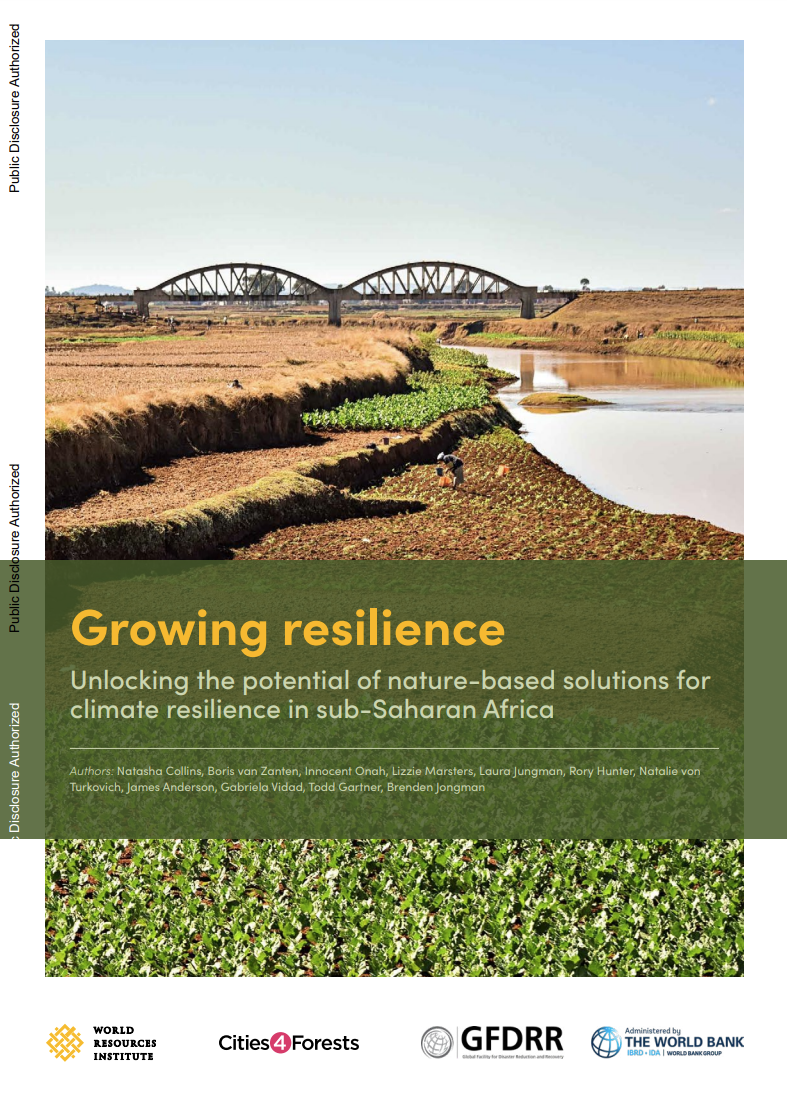© 2020-2022 The Global Program for Nature-Based Solutions for Climate Resilience. All Rights Reserved.
Sub-Saharan Africa is at a crossroads, facing escalating climate and nature threats while striving for economic growth. Despite contributing little to global greenhouse gas emissions, the region faces increasing vulnerability to the consequences of climate change. Its rapidly urbanizing population is expected to double by 2050, placing pressure on governments to expand access to basic services while building resilience to climate impacts. Yet with Africa facing an annual infrastructure financing gap of more than $100 billion, urgent investment and action are needed to secure a sustainable future. Communities, governments, civil society, and donors across the continent are increasingly embracing nature-based solutions (NBS) to enhance climate resilience. From integrating trees into farmlands, restoring wetlands, protecting coral reefs, and restoring nature in urban areas, these projects address critical infrastructure gaps for water quality, flood mitigation, and erosion control. They simultaneously create jobs, safeguard public health, and protect and enhance biodiversity. In some cases, NBS can be integrated with traditional gray infrastructure to draw on the complementary strengths of each approach. This report is one of the most extensive assessments of NBS projects for climate resilience in the region to date. It leverages data from WRI, the World Bank, and the African Development Bank, to analyze nearly 300 NBS projects in Sub-Saharan Africa from over the past decade. We determine progress to date, and what is needed to scale implementation and investment. The findings reveal momentum — NBS project initiation grew by roughly 15 percent annually from 2012-2022, with more than $12 billion in funding raised in aggregate during the same period. Yet, this is only a fraction of what’s needed to safeguard the region and its people. Unlocking the full potential of NBS requires systemic change. Jointly, we must provide governments with the tools and support to integrate NBS into policies, budgets and planned infrastructure projects. Multilateral organizations, donors, and civil society must increase investment in early project preparation, technical capacity, and monitoring. To scale financing, the public and private sector must expand innovative tools like green bonds, dedicated national funds and risk sharing mechanisms. Since private markets do not yet fully recognize the economic value of NBS, governments have an opportunity to make near-term, foundational investments and create new markets for NBS private finance that deliver long-term benefits for their citizens and the planet. Our findings also emphasize the importance of community involvement and ownership. Projects tailoring to local needs, incorporating gender equity, and leveraging Indigenous Knowledge can address persistent social challenges. Strengthening impact tracking and evaluation will build confidence and demonstrate NBS’s value to communities. The stakes are immense, but the opportunities are even greater. Sub-Saharan Africa’s unique challenges position it as a critical proving ground for scaling resilient climate solutions. By embracing NBS, the region can not only adapt to climate change and reduce biodiversity loss but also create jobs and increase the quality of life for hundreds of millions of people.
Translations Available:



